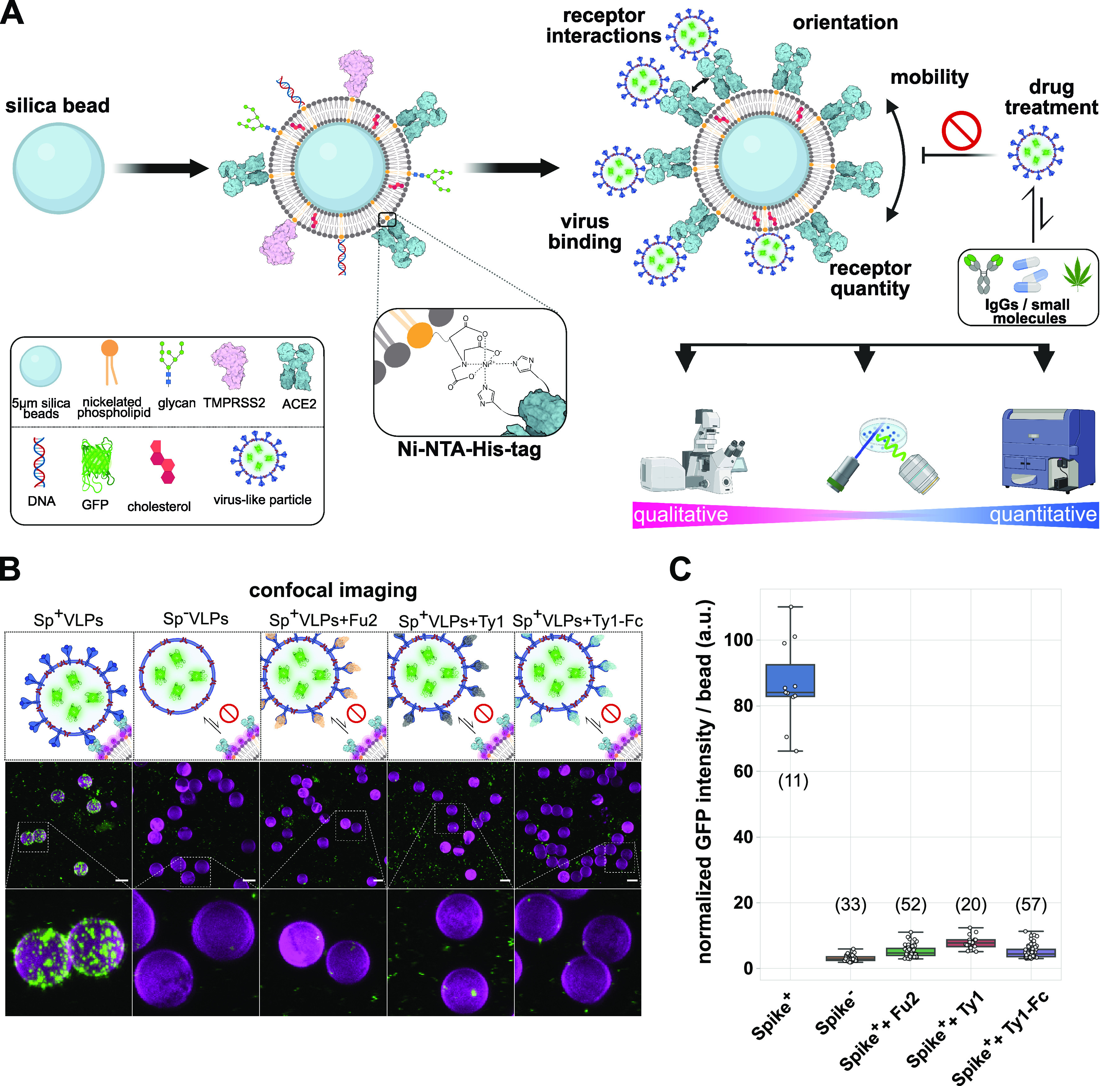Figure 1.

Design and characterization of multiparametric and high-throughput platform based on fBSLBs to study host–virus interactions. (A) Scheme depicting the bottom-up assembly of fBSLBs and available readout techniques. (B) LSM maximum-intensity projections of fBSLBs (magenta, lipid dye ASR-PE) and VLPs (green, EGFP) showing specific interaction between SARS-CoV-2 Spike VLPs (Sp+VLPs) and ACE2-fBSLBs. (C) Quantification of viral GFP-signal per fBSLBs of each condition from panel B shows specific attachment of Sp+VLPs to ACE2-fBSLBs (median = 84.05, N = 11) and no interaction between Sp–VLPs and ACE2-BSLBs (median = 2.88, N = 33) and nanobody-pretreated Sp+VLPs and ACE2-BSLBs (Fu2, median = 4.70, N = 52; Ty1, median = 7.77, N = 20; Ty-Fc, median = 4.41, N = 57). Graph shows representative data of three independent experiments. Boxplot with overlay of individual data points, median as black center line, box showing the quartiles and whiskers from minimum to maximum value. Illustrations were created using Biorender.com and Inkscape.
